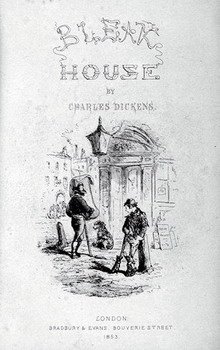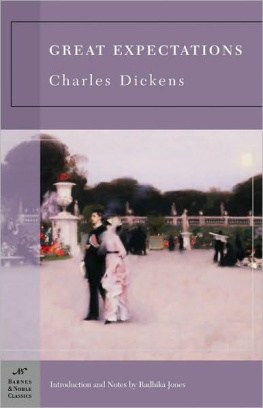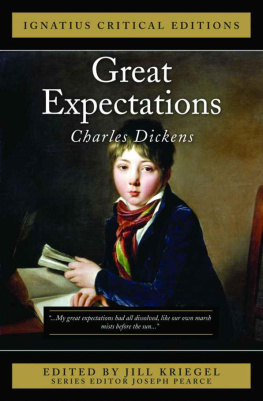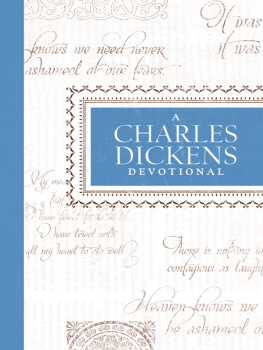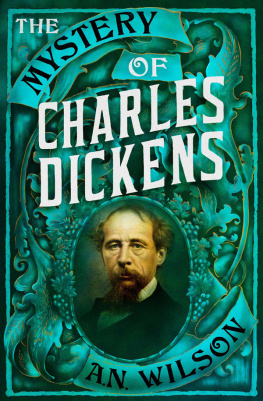Charles Dickens - Sketches by Boz
Here you can read online Charles Dickens - Sketches by Boz full text of the book (entire story) in english for free. Download pdf and epub, get meaning, cover and reviews about this ebook. genre: Prose. Description of the work, (preface) as well as reviews are available. Best literature library LitArk.com created for fans of good reading and offers a wide selection of genres:
Romance novel
Science fiction
Adventure
Detective
Science
History
Home and family
Prose
Art
Politics
Computer
Non-fiction
Religion
Business
Children
Humor
Choose a favorite category and find really read worthwhile books. Enjoy immersion in the world of imagination, feel the emotions of the characters or learn something new for yourself, make an fascinating discovery.

- Book:Sketches by Boz
- Author:
- Genre:
- Rating:4 / 5
- Favourites:Add to favourites
- Your mark:
- 80
- 1
- 2
- 3
- 4
- 5
Sketches by Boz: summary, description and annotation
We offer to read an annotation, description, summary or preface (depends on what the author of the book "Sketches by Boz" wrote himself). If you haven't found the necessary information about the book — write in the comments, we will try to find it.
Sketches by Boz — read online for free the complete book (whole text) full work
Below is the text of the book, divided by pages. System saving the place of the last page read, allows you to conveniently read the book "Sketches by Boz" online for free, without having to search again every time where you left off. Put a bookmark, and you can go to the page where you finished reading at any time.
Font size:
Interval:
Bookmark:
Sketches By Boz
Charles Dickens
OUR PARISH
CHAPTER I
THE BEADLE. THE PARISH ENGINE. THE SCHOOLMASTER.
How much is conveyed in those two short wordsThe Parish! And with how many tales of distress and misery, of broken fortune and ruined hopes, too often of unrelieved wretchedness and successful knavery, are they associated! A poor man, with small earnings, and a large family, just manages to live on from hand to mouth, and to procure food from day to day; he has barely sufficient to satisfy the present cravings of nature, and can take no heed of the future. His taxes are in arrear, quarter-day passes by, another quarter-day arrives: he can procure no more quarter for himself, and is summoned bythe parish. His goods are distrained, his children are crying with cold and hunger, and the very bed on which his sick wife is lying, is dragged from beneath her. What can he do? To whom is he to apply for relief? To private charity? To benevolent individuals? Certainly notthere is his parish. There are the parish vestry, the parish infirmary, the parish surgeon, the parish officers, the parish beadle. Excellent institutions, and gentle, kind-hearted men. The woman diesshe is buried by the parish. The children have no protectorthey are taken care of by the parish. The man first neglects, and afterwards cannot obtain, workhe is relieved by the parish; and when distress and drunkenness have done their work upon him, he is maintained, a harmless babbling idiot, in the parish asylum.
The parish beadle is one of the most, perhaps THE most, important member of the local administration. He is not so well off as the churchwardens, certainly, nor is he so learned as the vestry-clerk, nor does he order things quite so much his own way as either of them. But his power is very great, notwithstanding; and the dignity of his office is never impaired by the absence of efforts on his part to maintain it. The beadle of our parish is a splendid fellow. It is quite delightful to hear him, as he explains the state of the existing poor laws to the deaf old women in the boardroom passage on business nights; and to hear what he said to the senior churchwarden, and what the senior churchwarden said to him; and what we (the beadle and the other gentlemen) came to the determination of doing. A miserable-looking woman is called into the boardroom, and represents a case of extreme destitution, affecting herselfa widow, with six small children. Where do you live? inquires one of the overseers. I rents a two-pair back, gentlemen, at Mrs. Brown's, Number 3, Little King William'salley, which has lived there this fifteen year, and knows me to be very hard-working and industrious, and when my poor husband was alive, gentlemen, as died in the hospitalWell, well, interrupts the overseer, taking a note of the address, I'll send Simmons, the beadle, to-morrow morning, to ascertain whether your story is correct; and if so, I suppose you must have an order into the HouseSimmons, go to this woman's the first thing to-morrow morning, will you? Simmons bows assent, and ushers the woman out. Her previous admiration of the board (who all sit behind great books, and with their hats on) fades into nothing before her respect for her lace-trimmed conductor; and her account of what has passed inside, increasesif that be possiblethe marks of respect, shown by the assembled crowd, to that solemn functionary. As to taking out a summons, it's quite a hopeless case if Simmons attends it, on behalf of the parish. He knows all the titles of the Lord Mayor by heart; states the case without a single stammer: and it is even reported that on one occasion he ventured to make a joke, which the Lord Mayor's head footman (who happened to be present) afterwards told an intimate friend, confidentially, was almost equal to one of Mr. Hobler's.
See him again on Sunday in his state-coat and cocked-hat, with a large-headed staff for show in his left hand, and a small cane for use in his right. How pompously he marshals the children into their places! and how demurely the little urchins look at him askance as he surveys them when they are all seated, with a glare of the eye peculiar to beadles! The churchwardens and overseers being duly installed in their curtained pews, he seats himself on a mahogany bracket, erected expressly for him at the top of the aisle, and divides his attention between his prayer-book and the boys. Suddenly, just at the commencement of the communion service, when the whole congregation is hushed into a profound silence, broken only by the voice of the officiating clergyman, a penny is heard to ring on the stone floor of the aisle with astounding clearness. Observe the generalship of the beadle. His involuntary look of horror is instantly changed into one of perfect indifference, as if he were the only person present who had not heard the noise. The artifice succeeds. After putting forth his right leg now and then, as a feeler, the victim who dropped the money ventures to make one or two distinct dives after it; and the beadle, gliding softly round, salutes his little round head, when it again appears above the seat, with divers double knocks, administered with the cane before noticed, to the intense delight of three young men in an adjacent pew, who cough violently at intervals until the conclusion of the sermon.
Such are a few traits of the importance and gravity of a parish beadlea gravity which has never been disturbed in any case that has come under our observation, except when the services of that particularly useful machine, a parish fire-engine, are required: then indeed all is bustle. Two little boys run to the beadle as fast as their legs will carry them, and report from their own personal observation that some neighbouring chimney is on fire; the engine is hastily got out, and a plentiful supply of boys being obtained, and harnessed to it with ropes, away they rattle over the pavement, the beadle, runningwe do not exaggeraterunning at the side, until they arrive at some house, smelling strongly of soot, at the door of which the beadle knocks with considerable gravity for half-an-hour. No attention being paid to these manual applications, and the turn-cock having turned on the water, the engine turns off amidst the shouts of the boys; it pulls up once more at the work-house, and the beadle pulls up the unfortunate householder next day, for the amount of his legal reward. We never saw a parish engine at a regular fire but once. It came up in gallant stylethree miles and a half an hour, at least; there was a capital supply of water, and it was first on the spot. Bang went the pumpsthe people cheeredthe beadle perspired profusely; but it was unfortunately discovered, just as they were going to put the fire out, that nobody understood the process by which the engine was filled with water; and that eighteen boys, and a man, had exhausted themselves in pumping for twenty minutes, without producing the slightest effect!
The personages next in importance to the beadle, are the master of the workhouse and the parish schoolmaster. The vestry-clerk, as everybody knows, is a short, pudgy little man, in black, with a thick gold watch-chain of considerable length, terminating in two large seals and a key. He is an attorney, and generally in a bustle; at no time more so, than when he is hurrying to some parochial meeting, with his gloves crumpled up in one hand, and a large red book under the other arm. As to the churchwardens and overseers, we exclude them altogether, because all we know of them is, that they are usually respectable tradesmen, who wear hats with brims inclined to flatness, and who occasionally testify in gilt letters on a blue ground, in some conspicuous part of the church, to the important fact of a gallery having being enlarged and beautified, or an organ rebuilt.
The master of the workhouse is not, in our parishnor is he usually in any otherone of that class of men the better part of whose existence has passed away, and who drag out the remainder in some inferior situation, with just enough thought of the past, to feel degraded by, and discontented with the present. We are unable to guess precisely to our own satisfaction what station the man can have occupied before; we should think he had been an inferior sort of attorney's clerk, or else the master of a national schoolwhatever he was, it is clear his present position is a change for the better. His income is small certainly, as the rusty black coat and threadbare velvet collar demonstrate: but then he lives free of house-rent, has a limited allowance of coals and candles, and an almost unlimited allowance of authority in his petty kingdom. He is a tall, thin, bony man; always wears shoes and black cotton stockings with his surtout; and eyes you, as you pass his parlourwindow, as if he wished you were a pauper, just to give you a specimen of his power. He is an admirable specimen of a small tyrant: morose, brutish, and ill-tempered; bullying to his inferiors, cringing to his superiors, and jealous of the influence and authority of the beadle.
Font size:
Interval:
Bookmark:
Similar books «Sketches by Boz»
Look at similar books to Sketches by Boz. We have selected literature similar in name and meaning in the hope of providing readers with more options to find new, interesting, not yet read works.
Discussion, reviews of the book Sketches by Boz and just readers' own opinions. Leave your comments, write what you think about the work, its meaning or the main characters. Specify what exactly you liked and what you didn't like, and why you think so.


